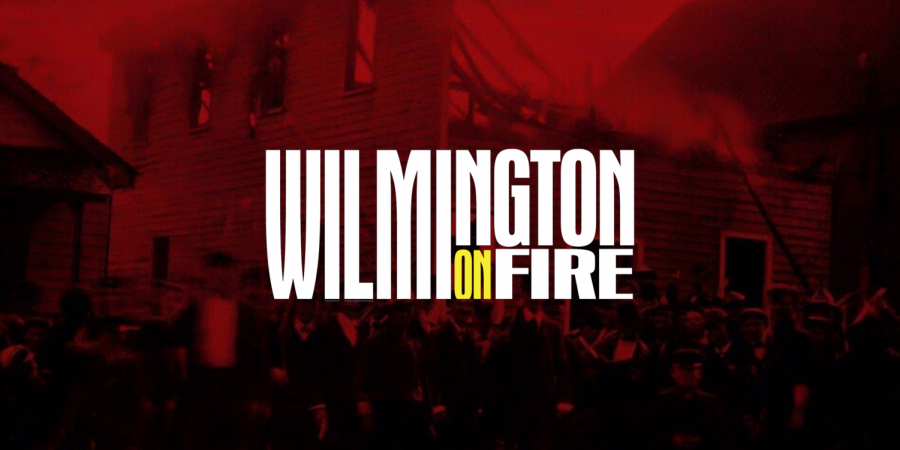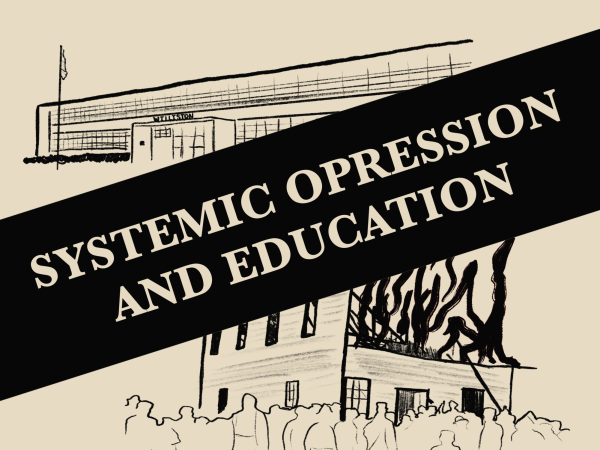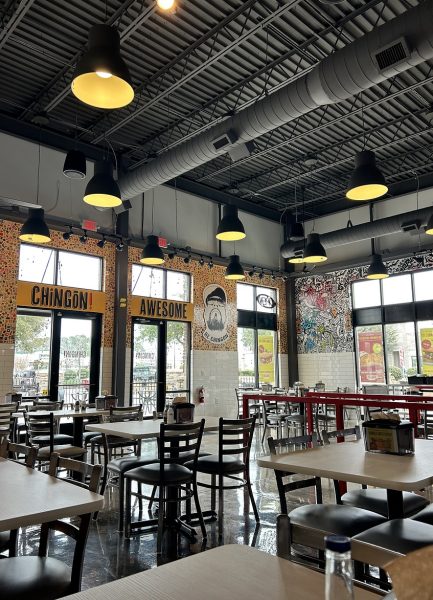UNCW hosts a viewing of “Wilmington on Fire”, a documentary on the Massacre of 1898
Five minutes to 7:00 pm, cars were lined up outside the Sarah Kenan Auditorium at UNCW on September 11—a full hour early to a drive-in viewing of “Wilmington on Fire”, a documentary about The Massacre of 1898 and subsequent racial injustice embedded in Wilmington’s history.
UNCW’s Office of the Arts has hosted these drive-ins since July now. By charging $28 (plus tax and fees) per vehicle, they allow you to bring a car full of friends or family and watch a movie in the comfort of your car as dusk falls. It’s a sweet, cozy way to get out of the house without stepping into a throng of people.
But there’s nothing particularly cozy about this film viewing. In the next 89 minutes, everyone gathered beneath the pop-up screen will learn about how the only successful coup d’état in the history of the United States was elaborately designed to dehumanize and silence Black power.
The documentary begins with the voice of Thomas C. Miller’s great-granddaughter, Faye Chaplin. If you’ve lived in Wilmington for a while, the names of prominent white men who shaped the city are inscribed on enough buildings, streets, or monuments that you’d recognize them in passing: Hugh McRae, George Rountree, Alfred Waddell, to name a few. Thomas C. Miller isn’t on the list because he was Black, to put it simply, although he was one of the wealthiest men in Wilmington at the time of the Massacre of 1898.
The documentary is interwoven with interviews from hot-blooded activists, independent researchers, professors, descendants of prominent Black leaders and historians who have dedicated their lives, in some way, to the study of the Black community. Their interviews and voice-overs are layered over historical documents, pictures and the occasional recording of the familiar streets of Wilmington where everything unfolded.
The final result is a documentary rife with unsettling facts about the fibers of Wilmington.
The Coup d’État of 1898, or the Race Riot of 1898 or the Massacre of 1898, isn’t a well-known bit of history, both locally and nationally.
For many, the introduction to this spectacle of the past came in the first weeks of June with the first waves of the Black Lives Matter protests. Since then, Star News has published various articles on racial injustice in Wilmington, renowned publications like Time have compared the massacre to modern-day police brutality, and the Cape Fear Museum recently unveiled a virtual map of the events on November 10, 1898 (something well-worth checking out to gain a better understanding of what happened).
So, what did happen?
On November 10 of 1898, a group of angry white men, led by the prominent Wilmington leaders mentioned earlier in this article, burned the office of Alex Manly’s The Daily Record, a popular Black-owned newspaper and the only Black-owned daily newspaper in America, to the ground. They forced leaders of Wilmington’s then bi-racial government to step down from their positions, killed anywhere from 12 to 300 Black people, and exiled almost half of the city’s Black population.
This marked a severe turning point in Wilmington’s, and North Carolina’s, history. The Coup heralded an era of severe racial segregation and the loss of opportunity for Black citizens. In contrast, the white supremacists who led the Coup were dubbed heroes and re-elected to office during the following term.
It wouldn’t be until the Civil Rights era, more than 60 years later, that the city and county government sported Black representation and participation.
The documentary delves deep into the surprising twists and mechanisms of what took place here. The truth of what led up to the massacre—the forged mortgage papers of homes that Blacks were forced to leave, the intense circulation of propaganda that demonized the Black race, the prosperity of a desegregated Wilmington—is so unsettling because it hasn’t been spoken about.
The rise of white supremacy and the careful operation of this Coup was organized diligently by white men who covered their tracks and were lauded evermore in history as heroes. It changed the scope of Wilmington irrevocably.
LaRae Umfleet, a researcher featured in the documentary who was the principal researcher of an NC commissioned research project on the events of 1898 said in her report:
“Because Wilmington rioters were able to murder blacks in daylight and overthrow a legitimately elected Republican government without penalty or federal intervention everyone in the state, regardless of race, knew that the white supremacy campaign was victorious on all fronts.”
The documentary’s creator Chris Everett posed a question to Alex Manly’s grandson (Yes, grandson. This wasn’t as long ago as you think it was), about what he thinks Wilmington would be like if the Coup never happened.
Dr. Lewis Manly responds, “Wilmington would have been one of the most prosperous cities in the world.”












